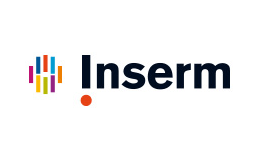Group 1- MALT Lymphoma (PI: P. Lehours)

The striking facts of the P. Lehours’s team can be resumed as follows.
- A new model of lymphomagenesis was implemented in our laboratory, based on Helicobacter species infection (H. pylori or H. felis) of transgenic C57BL6 mice for the human form of the APRIL cytokine (hAPRIL-Tg mice) (Floch P et al., Am J Pathol 2017).
-Implementation of a new original in vivo model of gastric MALT lymphoma (GML) after infection with H. pylori of human APRIL-transgenic C57BL6 mice (hAPRIL-Tg mice): the importance of APRIL in the development of gastric lymphoid infiltrates induced by Helicobacter species in vivo was confirmed. APRIL transgenic mice infected by Helicobacter species represent a novel and original animal model of gastric lymphomagenesis (Floch P et al., Am J Pathol 2017).
-Investigation in hAPRIL-Tg mice and on human gastric biopsies of the inflammatory and miRNA responses favourable for lymphoma emergence: we demonstrated in hAPRIL-Tg mice and in human gastric biopsies that a Treg balanced inflammatory environment is an important key to gastric lymphomagenesis induced by Helicobacter species (Floch P et al, Oncotarget 2015) (Laur AM et al, Oncotarget 2016). Four miRNAs were found upregulated (miR-150, miR-155, miR-196a, miR-138) and two down-regulated (miR-153, miR-7) in the stomachs of GML patients versus a gastritis control population. The analysis of their validated targets allowed us to postulate that most of these miRNAs could act synergistically in a common signaling cascade promoting lymphomagenesis and could be involved in the pathogenesis of GML (Floch P et al., Front Cell Infect Microbiol. 2017) (Blosse A et al., J Clin Med 2019).
-Confirmation of the upregulation of APRIL cytokine in human GML gastric cases and identification of the cellular origin of APRIL in vivo, produced by cells correspond to eosinophilic polynuclear cells located within lymphoid infiltrates. Tumoural B lymphocytes are also targeted by APRIL which suggests a pro-tumourigenic potential of infiltrating eosinophil-APRIL producing cells (Blosse et al, Sci Rep. 2020).
-Investigation of the role of the gut microbiota in gastric lymphomagenesis: using the material obtained in hAPRIL-Tg mice, we showed that the gastric and intestinal microbiota is significantly influenced by the APRIL genotype and by H. pylori infection. Helicobacter infection is specifically associated with an increase in gastric and intestinal Escherichia coli (Battaglia T et al, manuscript in preparation).
We studied (collaboration with Pr MJ Blaser, NYU, School of Medicine, New York, USA), the composition of the microbiota in these mice. Infection with Helicobacter in this model, especially with H. felis, has an influence on the richness and microbial diversity. Infection with H. felis is specifically associated with an increase in the relative abundance of E. coli in the gastric and intestinal tracts. These results indicate that gastric H. felis/E. coli co-infection should be explored in order to assess a possible synergy in terms of capacity to induce gastric lymphomagenesis. Indeed, E. coli producing colibactine (EPC) are abundant in the gut microbiota of colorectal cancer tumors and promote colon tumorigenesis in mouse. These EPCs in combination with Helicobacter could have a synergistic action on the emergence of GML in our Tg-hAPRIL model.
Collectively, our results strengthen the hypothesis that the host’s microbiota and immunological context prior to H. pylori infection are essential contributors to GML pathogenesis.
5 main publications
1- Laur AM, Floch P, Chambonnier L, Benejat L, Korolik V, Giese A, Dubus P, Mégraud F, Bandeira A, Lehours P. Regulatory T cells may participate in Helicobacter pylori persistence in gastric MALT lymphoma: lessons from an animal model. Oncotarget. 2016 Jan 19;7(3):3394-402. (IF 2016, 5.168)
2- Floch P, Izotte J, Sifré E, Costet P, Rousseau B, Giese A, Mégraud F, Dubus P, Hahne M, Lehours P. New animal model of gastric lymphomagenesis: APRIL transgenic mice infected by Helicobacter species. American Journal of Pathology 2017 Apr 28. pii: S0002-9440(17)30031-7. (IF 3.710)
3- Floch P, Capdevielle C, Staedel C, Mégraud F, Lehours P. Deregulation of microRNAs in a mouse model of Helicobacter pylori-associated gastric lymphomagenesis. Frontiers in Cellular Infection and Microbiology 2017 May 16;7:185. (IF 3.491)
4-Blosse A, Levy M, Robe C, Staedel C, Copie-Bergman C, Lehours P. Deregulation of miRNA in Helicobacter pylori-induced gastric MALT lymphoma: from mice to human. Journal of Clinical Medecine 2019. Jun 13;8(6). (IF 6.780)
5- Blosse A, Peru S, Levy M, Marteyn B, Floch P, Sifré E, Giese A, Prochazkova-Carlotti M, Azzi Martin L, Dubus P, Mégraud F, Ruskone Fourmestraux A, Fabiani B, Copie-Bergman C, Robe C, Hahne M, Huard B, Lehours P. APRIL-producing eosinophils are involved in gastric MALT lymphomagenesis induced by Helicobacter sp infection. Scientific Reports 2020. 10, 14858. (IF 3.998)




